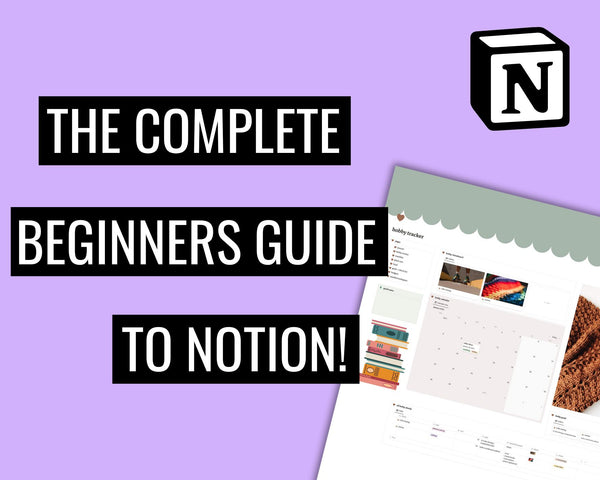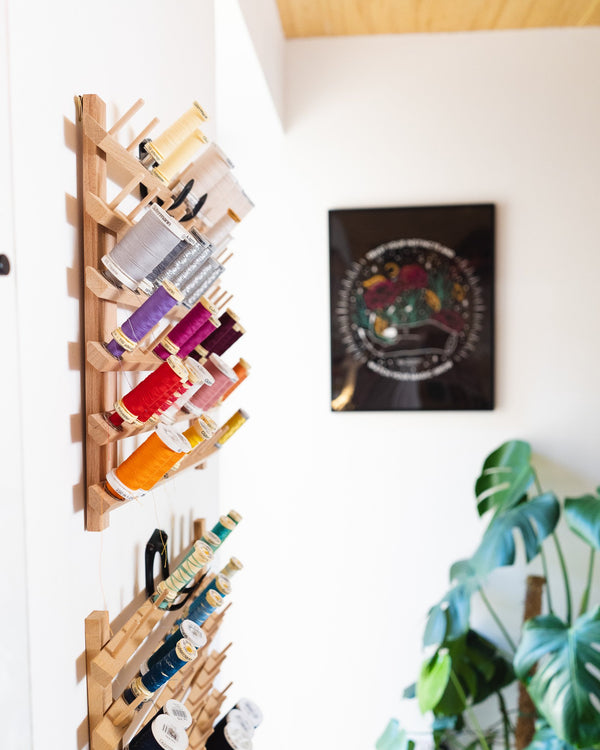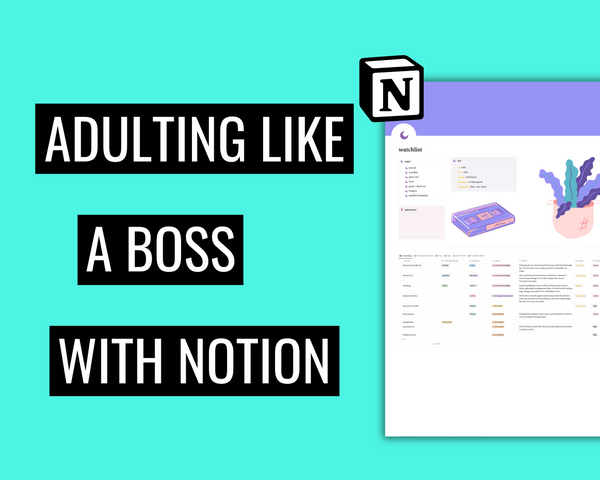AN OPEN CHAT ABOUT ADHD
Posted on October 10 2023
ADHD has a lot of misconceptions surrounding it. It isn’t about being naughty or being unable to sit still, it’s a huge variety of symptoms that manifest differently in everyone, from impulsive to inattentive - and everything in between. With this month being ADHD Awareness Month, we wanted to have an honest conversation with Abby, our founder, and Beth, our head of social. Abby and Beth have a lot of things in common, their love of cosy games, their need to have their nose in a book and they happen to both be in the process of trying to get an ADHD diagnosis.
WHAT IS ADHD?
The NHS website defines ADHD as ‘ a condition that affects people's behaviour. People with ADHD can seem restless, may have trouble concentrating, and may act on impulse.’
It’s easy to wrap something up in a medical definition and call it a job done, but really ADHD can feel different for everyone and it’s what makes getting a diagnosis, especially as an adult and even more so a woman, so hard! So many people we meet are going through this same process or are realising they have ADHD at the moment, it’s such a huge topic to talk about!
OUR JOURNEY WITH ADHD
Beth: Over the course of our friendship, Abby and I have always been able to be honest and open with each other about lots of things, our mental health included. We’ve both been going on this ADHD journey separately, but knowing we’re both going through it at the same time, it feels a little less lonely. I know we both want this diagnosis for different reasons, (for me it’s to know in myself and to feel less like an imposter, to get some answers so I can learn how to be kinder to my brain. I’ll let Abby tell you her reasons), but to be able to have someone to talk to who knows what you’re going through is a pretty powerful thing.
Abby, I’ll pass the torch to you, how has your ADHD journey been and why is it you’re seeking a diagnosis?
Abby: It’s been a long and crappy road if I’m being honest! It’s the culmination of more than 20 years of being in and out of doctors’ offices, handed a plethora of different mental health diagnoses, losing jobs, losing people and just feeling like a bit of an oddball. I learned to hold hands with my idiosyncrasies, even if people close to me made fun of them or didn’t understand. However, over the last few years, my work life has become more full-on (owning your own business will do that!), as has my personal life (I have a now 3-year-old). The everyday aspects of an overworked brain, endless projects and ideas is now just an overwhelming mess. I didn’t really have any interest in a diagnosis, as it just felt like another huge task I had no time to undertake, but I have been repeatedly told that the majority of my day-to-day struggles could be managed with ADHD medication, and honestly, I’m just doing myself a disservice by not at least trying it to see if it helps. Do you find it affects you daily, or that it comes in bursts?
Beth: I definitely think it’s becoming more daily than it used to be. It used to hit me in my busiest moments, but now it seems to be the thing that makes those moments feel busier. I work three jobs which already sets me up for sheer brain mania (Abby edit: I think you mean Brainia), there’s a lot going on up here. I’d say I’m a highly creative person and my brain is always active, but the feelings I’m associating with ADHD are making it difficult for me to cling to my ideas and my creativity. I know what I want to put out into the world and what I want to create, but a lot of the time I can’t pull my thoughts together enough to start.
Abby: I totally agree with this. Also being a creative person it’s so incredibly frustrating to have the drive and passion to do something, but your brain just renders you completely incapable. It’s like seeing a set of instructions on the other side of a piece of glass that keeps fogging over.
Beth: I think that’s what has caused imposter syndrome in me too though, part of me still now just thinks that that is what a creative, busy brain is like. But then I have to remind myself there’s more to it than that and a lot of what I experience and feel matches up with ADHD symptoms.
Even when writing this I feel the need to type out every box-ticking thing I experience linked to ADHD to defend how I feel myself, and that’s a crappy way to feel.
Abby: Oh my god I know exactly what you mean! Like you need to whip out evidence every time you mention it!
Beth: Do you struggle with imposter syndrome? When we talk I always feel like you're more confident in knowing you have ADHD, whereas I feel more hesitant.
Abby: I have had a lot of therapy to help with that. I still completely feel the imposter syndrome, and for that reason, this is the first time I’m publicly talking about it and naming it what it is. I’m also fortunate that my doctor very much advocates for me and reiterates that they are confident I have ADHD, and my sister was diagnosed many years ago too, so we can openly talk about how it affects us and how we cope. My therapist is insistent that I name it and own it, as the road to an official diagnosis is so long that not learning the tools that work for me to deal with it will just continue to make me feel worse. She’s definitely right! Now that I accept it for what it is, I find I’m beginning to be kinder to myself too, as I can acknowledge things as ADHD instead of just feeling shit and telling myself off.
What has made you look into a diagnosis?
Beth: I first heard the term ADHD associated with me when I was at the start of a new therapy course for my OCD in my mid-20s. They asked me how long I’d been diagnosed with ADHD and were then surprised when I said I wasn’t. I was just as surprised that they thought I was, as I’d associated ADHD with naughtiness and disruptive children, this wasn’t what I was like as a child.
I got home, spoke to my mum about it, we looked into it and agreed it wasn’t me. A few years went by and my mum came home from a trip to the Apple shop and told me she’d met a lovely guy who was talking to her about his ADHD, and she said every single thing he told her about his experience gave her the lightbulb moment that it was how I was too. Now I know no two people’s experiences are the same, but hearing this from my mum, who knows me best in the world, made me want to look into things again. I’d always assumed this is just how everyone is, not thinking other people’s brains weren’t doing certain things mine was. I think that’s a big reason I didn’t act sooner, I didn’t think the thoughts I was having weren’t the way others saw or did things. I didn’t think there was anything I should be looking into.
I think whatever research we’d done before must have been pretty top-level because this time round I found a lot more relevant points and finally began my rather long, and still ongoing, process of getting this diagnosis.
Abby: See I always felt like my brain was different, but I never thought it might be neurodivergent. I just thought (and so did friends and family) that I had odd quirks, or was introverted, or I was picky. It was a running joke in my family that I was weird because I didn’t like certain textures. It was my sister that made me look into it properly, as I was going through a particularly crap time, and every time I tried to explain something that had happened or how I was feeling, she just kept saying “Yeah I do that, it’s ADHD!”.
Once I started actually looking into the next steps, one thing that really helped me was THIS WORKBOOK. It notes each official symptom for diagnosis, then gives an explanation and example, leaving you space to write in your own experience. It made everything feel much clearer and gave me ‘evidence’ to take with me when I sought out professional help.
I think the key point is to realise that as with everything, neurodivergency is a spectrum, and everyone’s experiences and symptoms are different. There’s a lot of talk about ADHD at the moment as so many people see traits of it in themselves, but there is a huge difference between thinking it might be why you’re quirky, and the crushing realisation that this actually explains everything, and what would your life have looked like if someone else had noticed sooner?
>Both Abby and Beth are using the RIGHT TO CHOOSE path via the NHS for a diagnosis, for which the wait times are currently around a year. This is still better than the average NHS referral wait, which is estimated to be up to 7 years in some areas of the UK.
Thank you for taking the time to read about our experience, of course, no two people ever go through the same thing, but if you are going through something similar, we hope this makes you feel less alone.
• The Paper and Word Team •
A Notion Guide for Complete Beginners
Never used Notion before? We got you.
Read MoreWe're Hiring New Team Members!
We are really excited to offer this role to someone who is keen to join our growing team.
Read MoreHow to Adult Like a Boss With Notion
Notion has come to our rescue more than once over the past year, being able to centralise all of our thoughts, feelings and plans in one space has been a...
Read MoreOur Favourite Indie Bookshops
Readers and bookshops go hand in hand, we can’t actually legally walk past a bookshop without going inside, especially if it’s an indie bookshop! Indie bookshops are independently owned retail...
Read More















0 comments